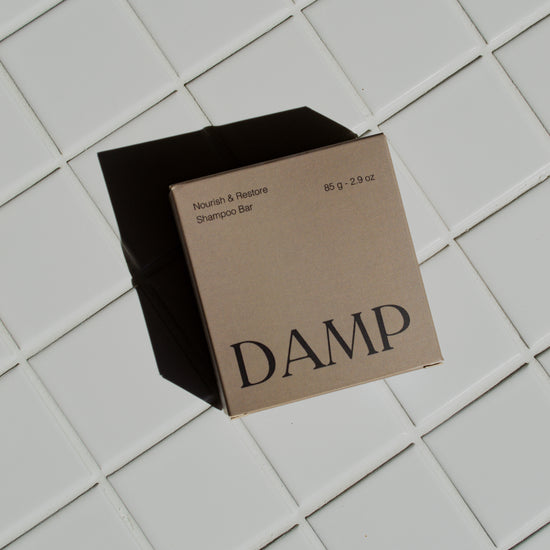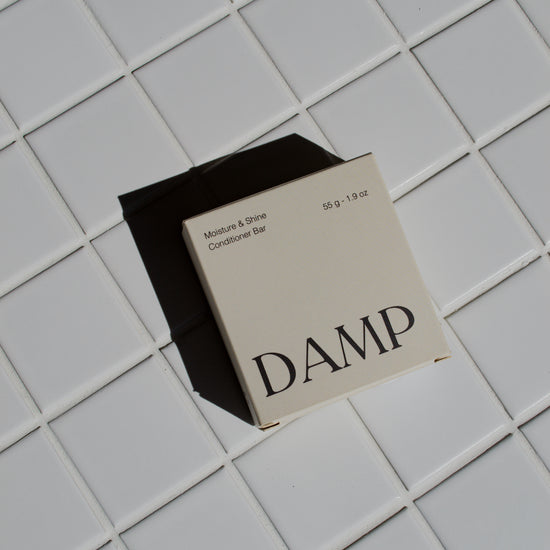VOL. 1 : CURLY HAIR
-
Curly hair, with its unique texture and personality, has always been a subject of fascination and envy. But for those blessed with curls, managing them can often feel like navigating a labyrinth of hair products and treatments, hoping to strike the perfect balance between taming frizz and enhancing those beautiful coils. In the quest for luscious locks, it's crucial to understand the do's and don'ts of hair treatment for curly hair – from ingredients to haircare rituals.
For centuries, curly hair has been celebrated across cultures, yet finding the right care regimen remains a challenge. In a market flooded with products promising miracles, it's easy to get lost in a sea of confusing labels and ingredients lists. But fear not, because armed with knowledge about what works and what doesn't, you can embark on a journey to unlock the full potential of your curls.
In this comprehensive guide, we'll explore the do's and don'ts of hair treatment for curly hair, shedding light on ingredients to embrace and those to avoid. Whether you're a seasoned curl enthusiast or just beginning to embrace your natural texture, this guide will equip you with the tools and know-how to achieve your best curls yet.
INGREDIENTS
-
DO'S
Shea, cocoa, and mafura butter are rich in emollients and fatty acids, making them superb choices for curly hair. These butters provide intense hydration, helping to lock in moisture and combat frizz, which is essential for maintaining the elasticity and definition of curls.
Argan and baobab oils are lightweight yet deeply nourishing, known for their ability to penetrate the hair shaft and replenish lost nutrients.
They impart shine, tame flyaways, and protect against environmental damage, ensuring curls remain vibrant and resilient.
Aloe vera, with its soothing and moisturizing properties, not only hydrates the hair but also promotes scalp health, reducing itchiness and irritation commonly associated with curly hair.
Honey acts as a natural humectant, attracting moisture to the hair shaft and sealing it in, resulting in softer, more manageable curls with enhanced bounce and shine.
Apple cider vinegar helps to balance the hair's pH levels, close the cuticle, and remove product buildup, leaving curls looking refreshed and revitalized.
Rice water is packed with vitamins, minerals, and amino acids that strengthen the hair from within, reducing breakage and promoting growth, while slippery elm extract provides excellent slip for detangling, minimizing hair breakage and preventing knots, making it easier to style and manage curly hair.
-
DON'TS
Parabens, commonly found in beauty products as preservatives, can disrupt the delicate balance of the scalp's natural oils, leading to dryness and irritation, which can exacerbate frizz and dullness in curly hair.
Alcohol, often used in hair products for its quick-drying properties, has a drying effect on the hair and scalp, stripping away moisture and leaving curls brittle and prone to breakage.
Sulfates, powerful cleansers found in many shampoos, can be too harsh for curly hair, stripping away natural oils and causing dehydration, leading to frizz and loss of definition.
Silicones, although they provide temporary smoothness and shine, can build up on the hair over time, creating a barrier that prevents moisture from penetrating the hair shaft, resulting in dryness and dullness.
Petroleums, commonly found in hair pomades and gels, can weigh down curly hair and create a greasy residue, leading to limp curls with reduced volume and bounce.
Synthetic fragrances can contain harsh chemicals that can irritate the scalp and dry out the hair, causing discomfort and exacerbating frizz.
Finally, traditional soap-based cleansers can be too stripping for curly hair, disrupting the natural moisture balance and leaving curls feeling rough and parched.
RITUALS
-
DO'S
Deep conditioning is essential for curly hair as it provides much-needed moisture, strengthens the hair shaft, and enhances curl definition, resulting in softer, more manageable curls with reduced frizz.
Gentle cleansing methods, such as sulfate-free shampoos or co-washing, help maintain the natural oils in curly hair, preventing dehydration and preserving the integrity of the curls.
Detangling with care minimizes breakage and tangling, allowing curls to maintain their shape and bounce.
Plopping or using a microfiber towel to dry curly hair gently absorbs excess moisture without causing friction, helping to maintain curl pattern and reduce frizz. Silk pillowcases or hair covers reduce friction and moisture loss, preserving the integrity of curls and preventing breakage while sleeping.
Protective styling, such as braids or twists, minimizes manipulation and protects curls from environmental damage, helping to maintain their health and vitality.
Scalp care is crucial for healthy hair growth, as a healthy scalp promotes strong, resilient curls.
Finally, regular trims prevent split ends and maintain the shape of curly hair, ensuring it looks and feels its best. Incorporating these methods into a curly hair care routine helps nurture and enhance curls, resulting in beautiful, healthy hair.
-
DON'TS
High heat styling can be detrimental to curly hair as it can lead to heat damage, dryness, and loss of curl definition.
Over-shampooing strips away the natural oils that curly hair needs to stay hydrated, resulting in dryness, frizz, and potential breakage.
Hot water can also dehydrate curly hair, causing it to become brittle and prone to breakage and frizz.
Rough towel drying can create friction and cause breakage, leading to frizz and disrupting the curl pattern.
Brushing dry curls can cause breakage and disrupt the natural curl pattern, resulting in frizz and loss of definition.
Tight hairstyles, such as tight ponytails or braids, can put excessive tension on the hair follicles, leading to breakage, traction alopecia, and loss of curl elasticity.
Cotton pillowcases absorb moisture from the hair and create friction, leading to frizz and disrupting the curl pattern.
Avoiding these methods helps to preserve the health and integrity of curly hair, allowing it to maintain its natural beauty and bounce.
WE RECOMMEND
-

NOURISH & RESTORE - SHAMPOO BAR
VIEW PRODUCT -

MOISTURE & SHINE - CONDITIONER BAR
VIEW PRODUCT



